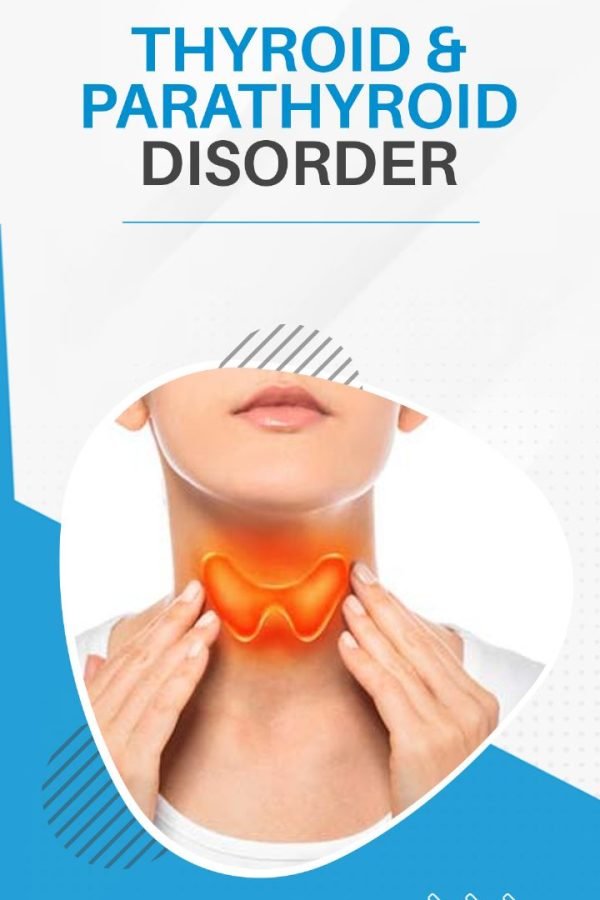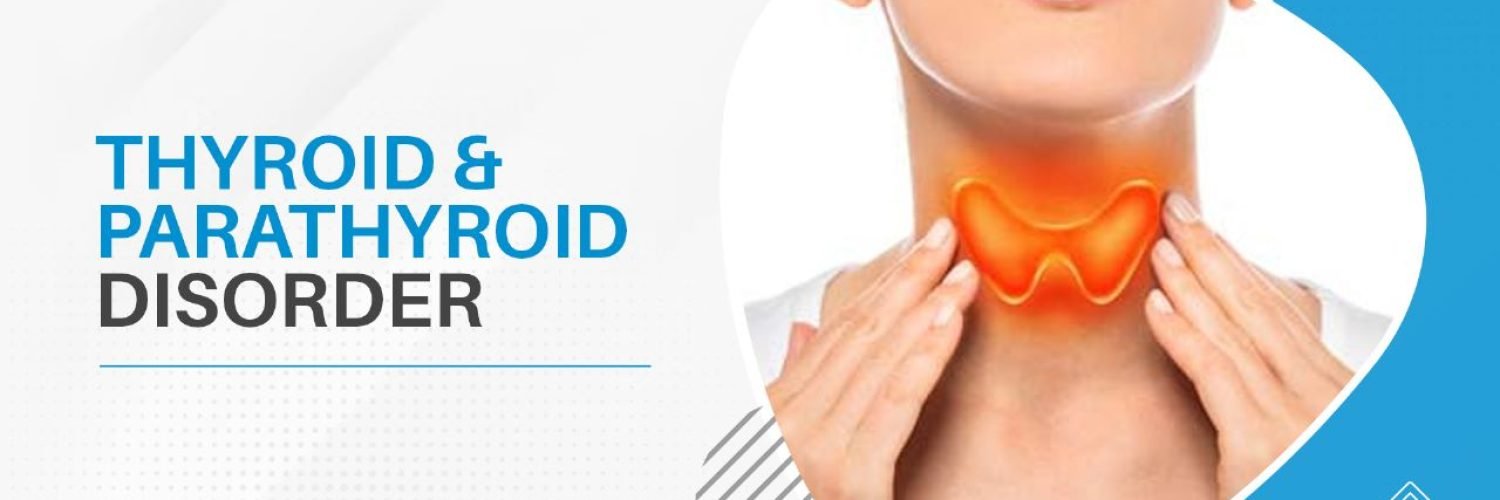- Anal Fissure Laser Surgery in Dombivli
- Appendix Treatment in Dombivli
- Bariatric Surgery in Dombivli
- Best Laparoscopic Surgeon in Dombivli
- Blogs
- Contact us
- Custom
- Dr Rahul Mahadar
- Dr. Dhanashree Mahadar
- Endoscopy Clinic in Dombivli
- Ent Surgeon in Dombivli
- Gallbladder Stone Treatment in Dombivli
- Gastrointestinal Surgeon in Dombivli
- Hernia Surgeon in Dombivli
- Home
- Laser Fistula Surgery in Dombivli
- Laser Piles Surgeon in Dombivli
- Services
- Specialities
- Testimonials
- Video


Thyroid Gland is one of the most important glands in Human Body. It is a butterfly shaped endocrine gland. Thyroid Gland produces essential Thyroid hormones to provide energy to cells as well as regulate body’s metabolism, heart rate and body temperature. Thyroid gland is located below the Adam’s apple in the lower part of neck and wraps around the windpipe (trachea). Every cell in the human body depends on the thyroid hormones.
Thyroid disorders occur when the thyroid gland releases too many or too few hormones. This imbalance can create disturbance in the body functions and affects body’s metabolism. Thyroid problems are much more common in women than in men.
Hyperthyroidism is also known as Overactive Thyroid and it occurs when the thyroid gland makes too much thyroid hormone. The most common cause of hyperthyroidism is Graves Disease which is an autoimmune disease that makes the thyroid gland to produce excess hormone. Other causes include thyroid nodules, inflammation of the thyroid and consuming too much iodine. Hyperthyroidism needs timely treatment otherwise it can lead to serious heart, bone and other problems. The most common treatments for hyperthyroidism are anti-thyroid medicine and radioactive iodine.
Hypothyroidism is known as an underactive thyroid and it occurs when the thyroid gland makes too low thyroid hormone. Women are more commonly diagnosed with hypothyroidism. An autoimmune disease like Hashimoto’s disease can cause body’s immune system to produce antibodies that attack thyroid tissue and damage the function of gland leading to less production of Thyroid Hormone. Hypothyroidism can usually be easily treated with thyroid hormone medicine. Hypothyroidism is much more common than hyperthyroidism.
Thyroid Nodules are growths or lumps in the thyroid gland. They are common and can be found in a normal size or enlarged thyroid gland. Around 95% of nodules are benign or non-cancerous. Risk factors for thyroid cancer are exposure to radiation, personal or family history of goiter and certain inherited genetic syndromes.
Symptoms of Thyroid Disorders are:
- Losing or gaining weight
- Swelling in the neck
- Changes in heart rate
- Changes in mood or energy
- Hair loss
- Too cold or hot body temperature
- Iodine Deficiency
- Autoimmune diseases such as Graves’s disease causing Hyperthyroidism and Hashimoto’s disease causing Hypothyroidism.
- Inflammation of the thyroid caused by a virus or bacteria
- Thyroid Nodules or non-cancerous lumps inside the thyroid
- Cancerous tumors on the thyroid gland
- Medical treatments like radiation therapy, thyroid surgery and some medicines
Parathyroid disorders develop when Parathyroid glands release inappropriate levels of PTH (Parathyroid Hormone) which controls calcium levels in the body.
Hypoparathyroidism is a rare condition that occurs when the parathyroid glands in the neck don’t produce enough parathyroid hormone (PTH). Hypoparathyroidism is usually treated with a special form of vitamin D and with calcium tablets.
Hyperparathyroidism is a condition in which one or more of the parathyroid glands become overactive and secrete excess amount of parathyroid hormone (PTH). This causes Hypercalcemia condition in which the calcium level in blood is above normal. Too much calcium in blood can weaken bones, create kidney stones as well as affects heart and brain functions. For primary and tertiary hyperparathyroidism, surgery is the most effective treatment.
Symptoms of Parathyroid Disorders are:
- Fragile bones (Osteoporosis)
- Kidney stones
- Excessive urination
- Abdominal pain
- Weakness
- Depression or forgetfulness
- Muscle aches or cramps in legs, feet, abdomen or face
- Tingling or burning (paresthesia) in fingertips, toes and lips
- Painful menstruation
- Dry skin
- Patchy hair loss
- Depression or anxiety
- Autoimmune disease
- Accidental damage or surgical removal of parathyroid glands
- Hereditary
- Cancer radiation treatment on face or neck
- Inappropriate production of Parathyroid Hormone
- Calcium and Vitamin D deficiency
- Noncancerous or cancerous growth (adenoma) on a gland
- Enlargement (hyperplasia) of two or more parathyroid glands
Timely diagnosis of Thyroid and Parathyroid Disorders is necessary to avoid complications in the future. Common diagnosis methods are:
- Blood Test to measure Thyroid Hormone (Thyroxin or T4), TSH receptor antibody (TSI), Thyroid Stimulating Hormone (TSH), Parathyroid Hormone (PTH) and Calcium Level.
- Needle Biopsy to evaluate nodules or lymph nodes in the neck
- Imaging tests such as CTscan and MRI
- Nuclear medicine tests such as Radioiodine scan and PET sca
- Physical examination
Treatment of Thyroid and Parathyroid Disorders is mainly depending on the types and severity of disorder.
This is the first line of treatment for Thyroid and Parathyroid disorders. Medications are given to replace the missing thyroid hormone in hypothyroidism condition. When hyperthyroidism is present, medications are used to decrease the production of thyroid hormone. If hyperthyroidism is not controlled with medications then radioactive ablation can be performed.
In case of Parathyroid disorders, medicines are used to prevent loss of calcium from bones and to lessen osteoporosis caused by hyperparathyroidism. Medicines are also used to make balance of PTH hormone in the body.
Endoscopic surgery is very advanced and effective treatment to cure Thyroid and Parathyroid diseases. Doctor performs endoscopic surgery if medicines are failed to cure Thyroid and Parathyroid diseases.
Surgery is the only way to treat parathyroid disease (hyperparathyroidism). Two types of surgeries available for parathyroid treatment like Open surgery and Endoscopic surgery. Endoscopic technique for parathyroid removal is preferred as the surgeon makes tiny incisions to remove the affected gland under sedation.
Endoscopic Thyroidectomy is the surgical removal of part or all of the thyroid gland. Depending on the reason for a thyroidectomy, all or part of the thyroid gland is removed. The various types of thyroidectomy include Partial thyroid lobectomy, Thyroid lobectomy, Thyroid lobectomy with isthmusectomy, Subtotal thyroidectomy and Total thyroidectomy.
Endoscopic surgery has various benefits than open surgery such as less pain, faster recovery, minimal blood loss, less scarring, higher accuracy and fewer chances of infection.
In most cases, Thyroid and Parathyroid disorders can be well managed with medical treatment and are not life threatening. Some conditions can require surgery. Adapting healthy lifestyle is helpful to prevent Thyroid and Parathyroid disorders.

